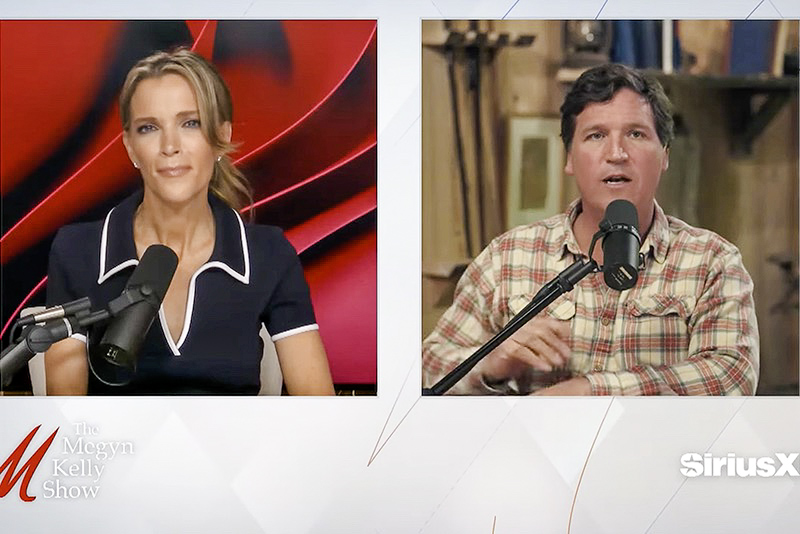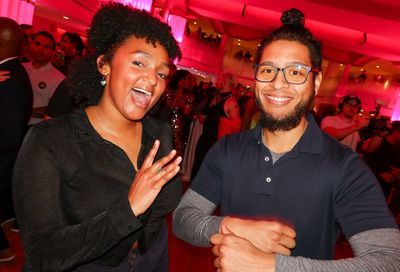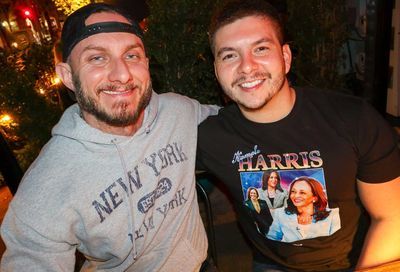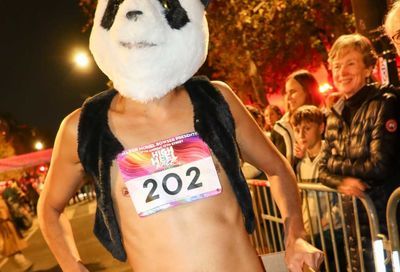Protesting Through Prayer
Catholic University's LGBT students, allies protest Cardinal George's comments on homosexuality
A group of LGBT students and straight allies from the Catholic University of America held a campus demonstration outside a conference focusing on marriage and the family in order to protest recent comments by Cardinal Francis George, the archbishop of Chicago, comparing the gay liberation movement to the Ku Klux Klan. The cardinal had been invited to speak at the conference hosted by the John Paul II Institute, which is headquartered on the campus of CUA, though it is separate from the university.
Ryan Fecteau, a 19-year-old CUA sophomore from Maine, said he was offended by George’s comparison. On the night of Jan. 11, Fecteau was tipped off by another student, senior Bob Shine, of the cardinal’s visit. The two decided to mobilize 13 of their fellow students and hold an impromptu demonstration outside the conference. The university, in keeping with Catholic doctrine, does not have an officially recognized LGBT campus organization.

Asked why they chose to protest the cardinal’s visit to the conference even though the cardinal has offered an apology for his remarks, Fecteau said they felt that the cardinal was not sincere in his apology, as he made other comments afterward that reinforced his KKK comparison.
For their protest, Fecteau said the group made signs reading: ”CUA Prays for Gay and Lesbian Friends and Family,” ”Love Thy Neighbor” and ”Gays Are Made in God’s Image as Well.”
The students held their signs during a silent prayer and attempted to engage attendees of the conference by circulating a letter listing their complaints regarding the cardinal’s comments and asking for a dialogue with the cardinal and the larger Catholic community about the church’s view of homosexuality. The letter was later published in the school’s student newspaper.
”Shockingly enough, we had a very positive reaction from some of the attendees,” Fecteau said. ”They said they agreed with us. And many of these conference organizers believe Vatican II went too far and want to walk it back,” he said.
Vatican II was a mid 1960s gathering of Catholic clergy designed to better define the church’s mission.
Fecteau said two people did not acknowledge the demonstration: Catholic University President John Garvey, who walked past the demonstrators without engaging or recognizing them, and Cardinal George, who pulled up to the curb, saw the demonstrators, and entered the conference from a back entrance, thereby avoiding the protesters.
A spokeswoman for the John Paul II Institute, which hosted the conference, did not comment on the demonstration, instead referring Metro Weekly to Cardinal George’s office. Calls and messages left with the cardinal’s Chicago office were not returned as of press time.
Victor Nakas, a spokesman for Catholic University, responded to requests for comment by saying the cardinal’s comments were made in Chicago and did not have any bearing on Catholic University. He said the students already made their views of the cardinal’s comments known through the demonstration and the letter published in the campus newspaper.
Nakas also said that if the students wish to engage in dialogue pertaining to ”student issues at Catholic University,” they are welcome to talk with the dean of students about such issues.
Shine, who is a straight ally, said the students want dialogue between members of the LGBT community, their allies and the Catholic Church, in keeping with the spirit of Vatican II, which emphasizes engaging the outside world.
”We went into this protest with every intention of being respectful and not disrupting the conference,” he said. ”[The protest] was about needing a dialogue, not about condemning the cardinal.”
Shine also said he believes the majority of the CUA student population is supportive of the LGBT community despite being practicing Catholics.
”We’re not fighting a losing battle,” he said of Catholics looking to affirm the dignity of their gays and lesbian friends and family. ”But we’re fighting a long-term battle.”
Support Metro Weekly’s Journalism
These are challenging times for news organizations. And yet it’s crucial we stay active and provide vital resources and information to both our local readers and the world. So won’t you please take a moment and consider supporting Metro Weekly with a membership? For as little as $5 a month, you can help ensure Metro Weekly magazine and MetroWeekly.com remain free, viable resources as we provide the best, most diverse, culturally-resonant LGBTQ coverage in both the D.C. region and around the world. Memberships come with exclusive perks and discounts, your own personal digital delivery of each week’s magazine (and an archive), access to our Member's Lounge when it launches this fall, and exclusive members-only items like Metro Weekly Membership Mugs and Tote Bags! Check out all our membership levels here and please join us today!
























